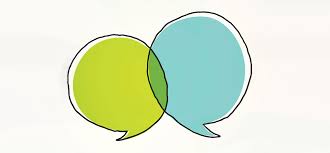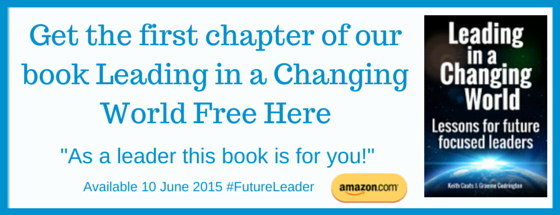It is said that a good or effective blog answers a relevant question. That being the case, here is a question every leader serious about being futurefit ought to be asking: How can I learn?
Pause for a moment and think about leadership and learning.
 Many leaders are not learners. Learning is something that has been done (it is usually referred to as ‘experience’) and furthermore it is seen as something not really suitable or fitting for those exercising leadership. “After all, isn’t it because I have learnt – in other words, because I ‘know how things go’, that I am in a leadership position in the first place?” is the unspoken refrain that directs both the conversation and leadership practice.
Many leaders are not learners. Learning is something that has been done (it is usually referred to as ‘experience’) and furthermore it is seen as something not really suitable or fitting for those exercising leadership. “After all, isn’t it because I have learnt – in other words, because I ‘know how things go’, that I am in a leadership position in the first place?” is the unspoken refrain that directs both the conversation and leadership practice.
Learning is something one does on their ‘way to the top’, on their ascent to a leadership position and once there, well, there is no time for learning. Another hidden learning impediment is that by appearing to be a learner a leader might well reason that it will diminish or detract from their leadership aura. And sadly, you may have a point: we often expect our leaders to have all the answers and to appear invulnerable in the face of the complexities that threaten to overwhelm us. So leaders play to the expectations placed on them and in doing so, ongoing and intentional learning is sacrificed.
It is a problem.
There are many reasons as to why it is a problem but let me simply state the most obvious reason. Leadership is always context specific. The bigger context is one of complexity, uncertainty, volatility and ambiguity. In this context leaders are facing unexpected and ‘new’ challenges almost on a daily basis. The leadership response to such adaptive challenges is to firstly define the challenge and secondly, find the solution. Finding the solution to an adaptive challenge requires new learning.
A leader who is not at heart a learner, cannot lead through adaptive challenges. The majority (but not all) challenges that leaders are encountering today are adaptive in nature.
So what then is the way forward for leaders to be learners?
It is quite simple really: smart leaders ask a lot of questions. They use formal and informal conversations to ask questions. They engineer situations whereby they can sharpen their curiosity about others through questions.
Having read Brian Grazer’s wonderful book, ‘A Curious Mind’ I have intentionally tried to practice curiosity in conversations. It has been an enlightening and rewarding ‘social experiment’ and one that is far from over; in fact I hope it will never ‘be over’ but rather will become an ingrained habit nurtured to the point of becoming an unconscious skill or state of being. In two recent conversations, one with a Board Chairman of one of Africa’s biggest and most successful retailers and the other with an Olympic silver medalist, I practiced the art of ‘curious questions’. An interesting thing emerged: My questions were met with enthusiastic and engaging responses, ones that led to even deeper questions. Both conversations were interrupted and when the interruption passed, in both cases the person to whom I was talking volunteered to ‘pick-up’ the conversation, eager to re-engage. This I found interesting because it indicated that they were invested in the conversation. In both instances we parted with the ‘other party’ expressing a keen desire to resume ‘our conversation’.
But here is the important point: in both cases I came away inspired, holding fresh and keen insights and better for having had the conversation than had we merely followed the usual social discourse that the ‘rules dictate’. I came away having learnt a great deal and strangely, it seems that something was also ‘unlocked’ in those with whom I had the conversations even although that wasn’t the intention. I came away energized and wanting to get better at ‘curiosity conversations’ and pursue them at every opportunity with others at life’s multiple intersections. To cultivate the habit and then find ways to capture the learning becomes the twin challenge. Neither is very difficult but it simply takes an awareness and then the discipline to pursue the ‘change of mind’ that underpins such practice. And here is the ‘golden egg’ that follows: doing this will guarantee that I remain a learner.
Now it is up to you.
Give it a try…somehow I don’t think you will regret it and the wonderful thing is you don’t have to only ‘practice’ curiosity on Board Chairmen and Olympic medalists…it works on everyone!



